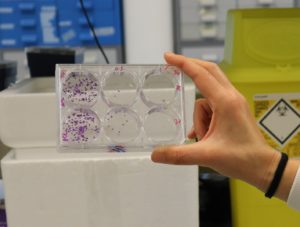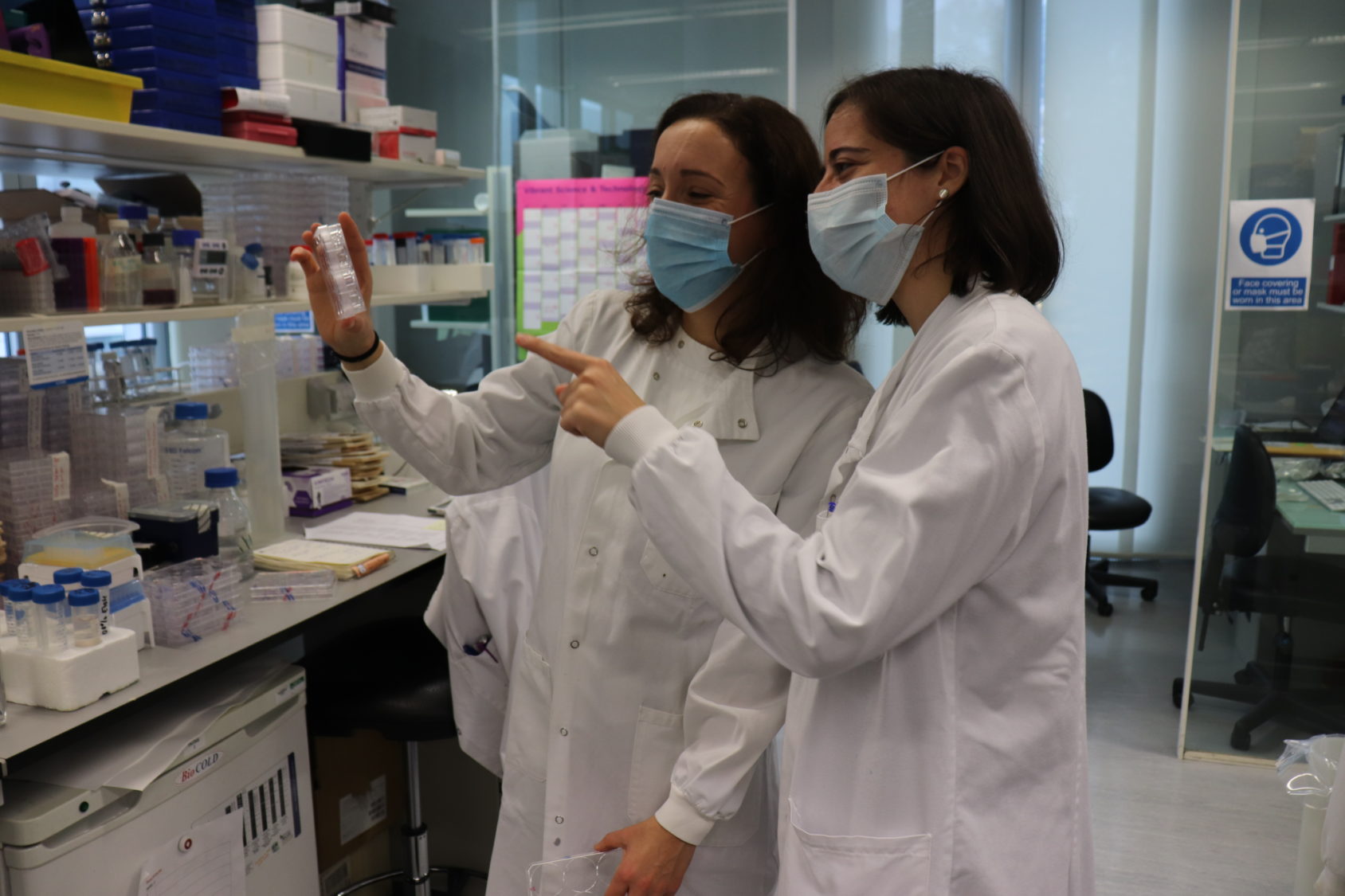MCL-1: A new therapy for prostate cancer?
Project Summary
About the Researchers
Dr Kirsteen Campbell
Principal Investigator
Kirsteen is an Associate Scientist at CRUK Beatson Institute and an Honorary Senior Lecturer at University of Glasgow. She is focused on understanding the role of aberrant cell death in cancer development and response to therapy.
Dr Laura Martinez-Escardo
Post-doctoral Researcher
Laura is a post-doctoral researcher with a background in tumour cell death pathways. Laura is interested in how these cell death pathways are altered in prostate cancer and how reinstatement of cell death could be used to improve treatment for advanced prostate cancer.
Professor Karen Blyth
Co-Investigator
Karen is Professor of In Vivo Cancer Biology at CRUK Beatson Institute and the University of Glasgow and she uses model systems that fully recapitulate the complexity of cancers to investigate how cancers grow and spread around the body.
Professor Hing Leung
Co-Investigator
Hing is a clinician-scientist and urological surgeon. Hing’s research investigates the aberrant signalling pathways that drive prostate carcinogenesis and how this knowledge can be used to develop better prognostic biomarkers and therapeutic targets.
Proteins: The building blocks of life
Proteins are essential for life and play a variety of roles throughout our bodies, from digesting food, to building and repairing tissue, to carrying oxygen in the blood.
MCL-1 is a protein which plays a key role in stopping cell death. However, high levels of MCL-1 can result in cells growing uncontrollably, leading to cancer.
High levels of MCL-1 are found in men with advanced prostate cancer and high levels of MCL-1 are also thought to be linked to hormone therapy resistance. This protein has already been shown to be important for the development of other cancers, including breast cancer. However, we currently understand very little about MCL-1’s role in prostate cancer.

Kirsteen hopes that this research project will establish the role that MCL-1 plays in prostate cancer. This will open new avenues for research into cancer that has spread, and for treatment resistance. In the long term, this will mean new ways to treat prostate cancer and improve outcomes for patients.

The research project
Kirsteen and her team will explore MCL-1’s role by growing prostate cancer cells in the lab. They hope to understand why we see such high levels of MCL-1 in people with advanced prostate cancer. The researchers also aim to test whether advanced prostate cancer could be treated by targeting MCL-1. Drugs targeting MCL-1 have already been developed to treat blood cancers. Kirsteen hopes that in the future these drugs could be repurposed to treat prostate cancer. The drugs could also be combined with other treatments to help them work more effectively.
Kirsteen hopes to identify whether drugs targeting MCL-1 can be used in combination with current therapies to treat prostate cancer. This would offer new treatment options to people living with advanced prostate cancer.
The researchers will be investigating drugs that have already been developed for blood cancers and are currently being tested in clinical trials. This means that if they are shown to be successful against prostate cancer, they could be translated into the clinic and made available to patients quicker than other new treatments.
““We will bring a novel approach to the investigation of advanced prostate cancer, where we believe that drugs already in clinical trials for other types of cancer could be exploited to eliminate prostate cancer cells from the body. We aim to expedite the development of these new therapeutics in combination with current prostate cancer treatments and are delighted to use this PCR award to help make a difference to the lives of men with prostate cancer.”
Dr Kirsteen Campbell
CRUK Beatson Institute, Glasgow






